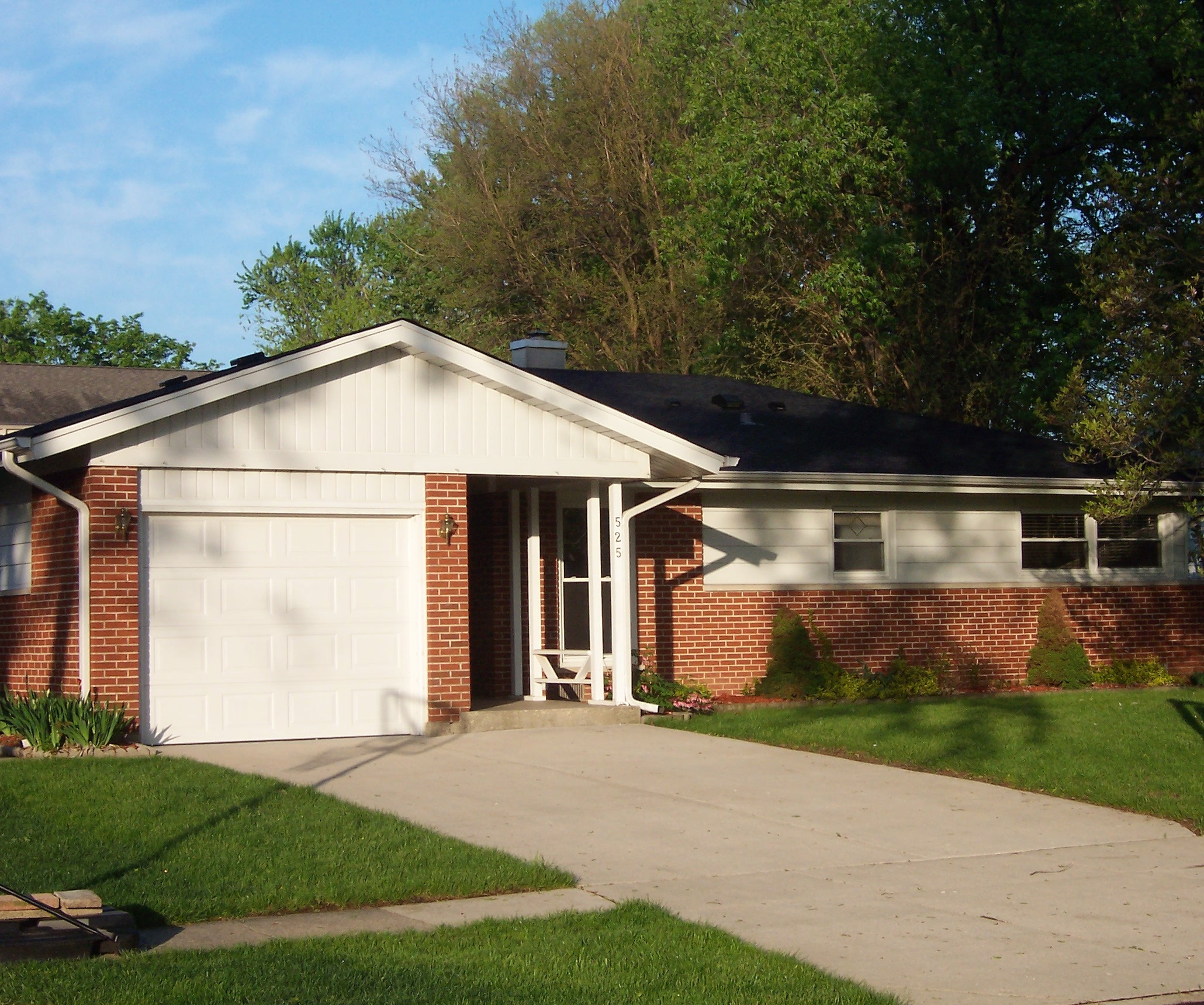
Selling a House in Probate Illinois
Probate properties present lucrative opportunities for real estate investors and budget-conscious individuals. However, it is important to understand the necessary steps for a homeowner involved in the probate process in order to successfully sell the property. This article serves as an informative guide for individuals navigating the probate process, offering explanations on what probate entails and providing strategies to effectively sell a property in probate while maximizing profitability.
What is a Probate?
When a person passes away, whether they have a will or not, their assets are immediately the responsibility of either the executor of their estate or the Court. There are two types of probate: formal and informal. Informal probate occurs when there is an original will and no disputes over the identity of the beneficiaries. This article focuses on the more complex formal probate process, which is necessary when the estate has significant debts, there is a dispute over the will, or the original will cannot be found. In these situations, the Court must be involved.
Can a House Be Sold While in Probate?
Yes, it is possible for a property in probate to be sold by three different entities. Firstly, the executor of the estate or a person designated in the will can oversee the distribution of the estate and choose to sell the property. Secondly, in cases where there are no specific heirs or beneficiaries named in the will, the court can appoint an administrator to manage the estate and make decisions regarding the property. Lastly, if there are no heirs or beneficiaries seeking administration, the court itself can take charge and decide what happens to the property. Once the responsible party, whether it be the executor, administrator, or court, determines who will inherit the property, the heirs or beneficiaries can initiate the process of petitioning for the sale of the probate property.
What Does it Take to Sell a House in Illinois While in Probate?
The primary duty of an executor is to safeguard the assets of the estate in order to distribute them to the designated heirs or beneficiaries as specified in the will. Occasionally, a scenario may arise where the estate is burdened with significant debt owed to creditors or delinquent on taxes to the government due to neglect of the property. In such circumstances, the executor, administrator, or the Court has the authority to sell the property to clear all debts, irrespective of the presence of heirs.
An illustrative instance of this scenario involves an elderly woman who sadly passes away, leaving an executor responsible for managing her financial matters. The deceased woman has two individuals designated as her Heirs. At the time of her passing, she has accumulated debts amounting to $90,000 from hospital expenses and credit card usage. Although she leaves behind a valuable property worth $150,000, she has no liquid assets and owes $80,000 to the hospital and $10,000 in credit card debt. Despite her demise, her estate is still obligated to settle these outstanding debts. In the event that the Heirs are unable to personally cover the debt overhead, it becomes necessary for the executor to sell the property in order to raise the required $90,000 to clear the debt. Following the sale of the house, the remaining amount of $60,000 would be equitably distributed between the two Heirs.
In the event that a decedent passes away without leaving a will and without any immediate heirs, it is possible for a property in probate to be sold. In such circumstances, the Courts have the authority to mandate the sale of the property, with the resulting proceeds being allocated to the closest relatives.
Need To Sell Your House Fast?
We buy houses in ANY CONDITION! We pay CASH and you will not pay any commissions, agents, or fees. Put your address and email below and answer 5 easy questions on the next page to get a cash offer in 24 hours!
Steps for Selling a House in Probate
If you are a property owner in IL facing difficulties in selling your property that is currently in probate, there are viable solutions available. In accordance with the applicable laws within your locality and state, the procedure for selling a probate property typically involves four essential steps. The initial step entails the appointment of an executor or administrator, in cases where one has not yet been designated by the deceased individual.
If you have been designated as the executor, or if you and the executor are in agreement on the next steps, you now have the authority to determine whether to sell the property or retain it. In the event that the estate has outstanding debts or if you have inherited a property in a different state that is not practical to keep, you have the option to sell the property and discontinue involvement. However, prior to proceeding with the sale, it is necessary to have the property appraised. Once the appraisal is finalized, you can then seek permission from the Court to list the property for sale by yourself (FSBO) with a reputable real estate agent who specializes in probate properties, or sell it directly to an investor.
Decide How to Sell the Property:
- Valuation or Appraisal
First, it is essential to determine the value of the property. This can be achieved by obtaining a valuation of the land from a reputable professional or by engaging the services of an appraiser who possesses a comprehensive understanding of the relevant laws governing the property evaluation process in the area. It is worth noting that in numerous states, the Court mandates that the property must be sold for no less than 90% of its appraised value. Consequently, it becomes even more crucial to ensure that the appraiser chosen has specific expertise in dealing with probate properties and does not inflate the value of the land unnecessarily.
- Listing the House
Once you receive the appraisal for the property, as the executor or with the assistance of your lawyer, you will need to submit an intention to sell the house and other assets to the court. This document will include the final appraisal amount and the chosen method for selling the property, which could be auction, traditional market sale, selling directly to an investor, or other options. After the petition is approved, you can proceed to list the property and inform potential buyers about its availability. It is important to have someone knowledgeable about probate properties on your side, whether it be yourself, an experienced real estate agent, or an investor.
- Offers
As you weigh your options, it is important to carefully assess the offers that come your way, whether they arrive in abundance or gradually. One crucial aspect of this process is evaluating your objectives for selling the house. Are you aiming for a swift sale in order to settle the estate’s debts? Alternatively, are you willing to wait longer in hopes of obtaining a higher profit? Perhaps the property is in a state of disrepair, necessitating a buyer who is equipped to carry out a complete renovation. These are all factors that require careful consideration when determining the appropriate timing and approach for listing a property in probate.
Having a clear understanding of the objectives that must be achieved through the sale of the property will assist in making an informed decision regarding which offer to accept, thereby enabling progression to the subsequent stage.
- Notice of Proposed Action
Once a buyer submits an offer, it is essential to inform them that the sale can only be finalized after receiving confirmation from the court. Though this should not be surprising due to disclosure laws, buyers who lack experience in probate proceedings may hesitate due to the additional time required for the sale. Consequently, probate properties are often overlooked in favor of other options, despite being competitively priced for a quick sale. The prolonged timeline may lead buyers to conclude that it is not worth the delay. However, if a buyer presents an offer and is willing to wait, the court will review the bid before granting an order to approve the sale of the property.
- Bidding
In the context of auctions, a property undergoing probate can be marketed as available for sale before the Court finalizes an Approval to Sale in order to attract more potential buyers. In auctions, it is typically the responsibility of the Court to manage and oversee the bidding process. This type of sale is considered a last resort due to the strict rules and guidelines that must be adhered to. Once a bidder has successfully secured the property, the executor will request authorization from the court to proceed with the sale. However, if any of the heirs object, the sale may be cancelled and the property put on hold while the Court determines the next course of action.
- Finalization of Sale
Assuming transaction of the aforementioned residential property, be it a house, condominium, rental property, or parcel of land, proceeds seamlessly and without complications. Even in the event of minor setbacks encountered during the process, upon receiving a court-approved offer, it is imperative to conclude the sale. The executor or legal representative will be required to submit a final account and petition for the ultimate distribution. Following the court’s approval, the title documents can be executed, thereby legitimizing the sale of the property.
Mistakes to Avoid When Selling a Probate Property
- Moving Too Quickly
When an individual passes away, their family may feel compelled to expedite the process of selling the property in order to allow themselves sufficient time to mourn their loss. Alternatively, if there is debt with interest that accrues monthly, the appointed executor or administrator may seek to sell the house promptly at a valuation below market value to settle the estate. Occasionally, a hasty sale may also occur when the property is in a state of disrepair or requires significant upgrades that the beneficiaries are unwilling to finance. In such cases, the property may be undervalued to facilitate its sale in its current condition.
- Not Completing a Real Estate Disclosure
The Real Estate Disclosure laws can present significant challenges depending on the state in which you reside, much like the probate process. These laws encompass a comprehensive set of requirements pertaining to the disclosure of specific issues, for instance, lead paint or asbestos, that must be disclosed to potential buyers prior to the completion of a property sale transaction.
In accordance with state regulations, it is standard practice for sellers and their agents to provide written disclosure of any significant issues or defects pertaining to the property. The National Association of Certified Home Inspectors defines “material defects” as specific problems with the residential property’s systems or components that could potentially have a considerable negative impact on its value or pose an unreasonable risk to individuals. It is important to note, however, that the mere fact that a system or component is approaching or has reached the end of its typical useful life does not automatically qualify as a material defect.
Seasoned real estate professionals possess the expertise to adeptly navigate these complex circumstances. However, the situation becomes perplexing when one inherits a property in which they never resided. In such cases, it becomes a conundrum to determine what information should be disclosed. Certain states provide exemptions for executors, sellers, and/or real estate agents from completing local real estate disclosure forms, particularly when the property is in probate. The rationale behind this exemption lies in the fact that these individuals neither currently reside in nor have ever resided in the property, thus rendering them unaware of any relevant information for disclosure.
If you have any uncertainties regarding the laws of your state, seeking guidance from an individual well-versed in probate real estate, such as a seasoned real estate agent or investor with prior experience in procuring probate properties, would prove advantageous in navigating the complexities of these legal matters. In the event you choose to explore the latter, it is imperative to ensure that you sell your property directly to a capable investor who is not averse to acquiring properties under probate circumstances and is willing to assume the associated risks of purchasing a home from someone who cannot provide comprehensive disclosure. It is important to remember that viable alternatives do exist.
- Failing to Hire a Lawyer
In the realm of probate matters, it is undoubtedly advisable for any individual embarking on the intricate process to consider enlisting the guidance and support of a proficient real estate lawyer who specializes in probate affairs. By entrusting their case to a seasoned professional like this, individuals can harness the invaluable expertise and extensive experience that such a specialized attorney possesses. With the capability to deftly navigate the complexities and challenges inherent in the probate proceedings, they hold the key to unlocking a smoother and faster resolution.
The advantages of seeking the assistance of a well-versed real estate lawyer specializing in probate become apparent from the very onset of the process. Their comprehensive understanding of the legal landscape enables them to meticulously assess the intricacies of the case, identify potential hindrances, and chart out a strategic course of action. This astute guidance empowers individuals to avoid the manifold pitfalls that may arise when navigating the labyrinthine paths of probate on their own.
One of the most significant advantages of having a specialized real estate lawyer by your side during the probate process is their proficiency in presenting a persuasive and compelling petition to the Court. With their deep-rooted knowledge of the legal statutes and regulations governing probate, they can craft a petition that resonates with the Court’s requirements and facilitates a smoother progression towards the sale of the property in question. By skillfully addressing any potential legal concerns or obstacles, the lawyer enhances the prospects of a favorable outcome for their client, resulting in a more efficient and streamlined probate process.
Moreover, in addition to their expertise and knowledge of the legal framework, they possess the ability to provide step-by-step legal guidance, ensuring a seamless and stress-free experience for individuals looking to sell their undesired real estate. This invaluable service not only minimizes inconvenience but also alleviates any emotional strain that may arise during the probate process. Their extensive understanding of the intricacies involved enables them to identify and address potential blind spots, thus safeguarding the interests of their clients.
Seeking consultation with these professionals proves to be an indispensable asset, as it guarantees a thorough examination of any potential loopholes or hurdles that might otherwise impede the sale of real estate.
By turning to their expertise, individuals can navigate the probate process with confidence, knowing that every aspect has been thoroughly analyzed and accounted for, further solidifying the success of their property sale.
- Waiting Too Long to Start the Probate Process
When an individual experiences the loss of a loved one, their grieving process often necessitates temporarily suspending various tasks in order to cope with the deceased’s absence. However, it is crucial to consider the status of the probate property during this period. While we process the emotional aspects of our loss, property taxes persistently accrue, utility bills continue to arrive, and the bank maintains its expectation of monthly mortgage payments until the property is resolved. Failing to address these matters promptly can accelerate the accumulation of expenses in the estate, depleting its assets and presenting a challenging situation for you to navigate.
Related Articles
Related Articles
Who Buys Houses in Probate?
At Cash Offer Partners, we pride ourselves on our expertise in direct house-buying services. Our reputation precedes us when it comes to our ability to purchase properties for cash, providing our clients with a seamless and cost-effective experience. If you find yourself in need of selling a house or property that is currently involved in the probate process, reaching out to us promptly is highly recommended. Our team of professionals will promptly assess your situation and provide you with a highly competitive cash offer.
One of the key advantages of working with us is our willingness to purchase homes in any condition. Regardless of whether a property is in need of extensive renovations or is in pristine condition, we are open to making an offer. Navigating the intricate procedures involved in selling a house under probate can be overwhelming, but you can entrust us to handle it with ease. With our expertise and knowledge, we ensure a swift and hassle-free transaction, putting your mind at ease during this challenging time. By choosing to work with Cash Offer Partners, you can be confident that you are in safe hands throughout the entire process.
Send us a few pieces of information about your property and our team can get a cash offer to you so you know your options and can make an informed decision. We look forward to hearing from you.

